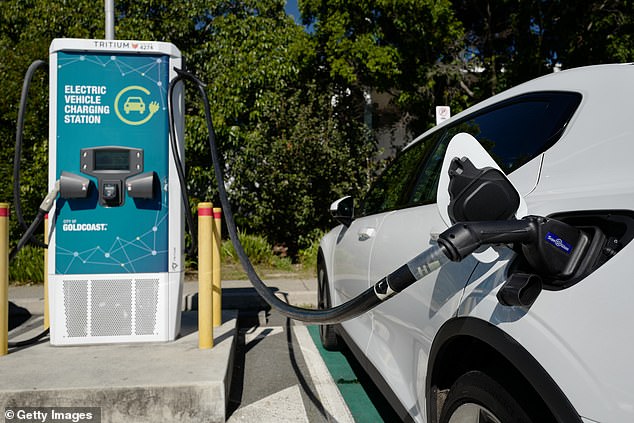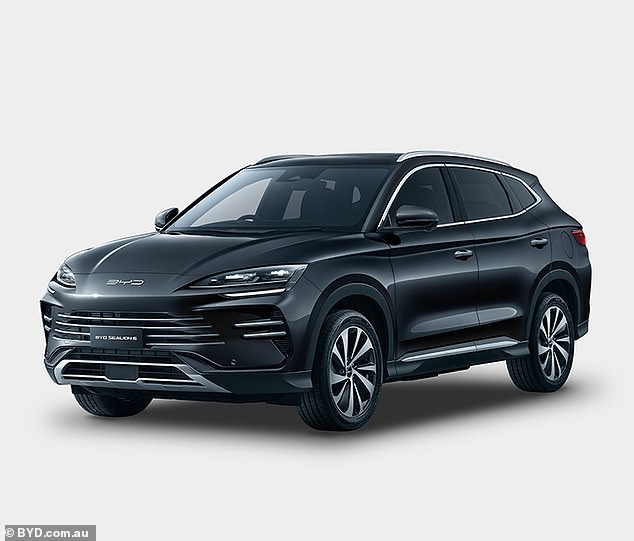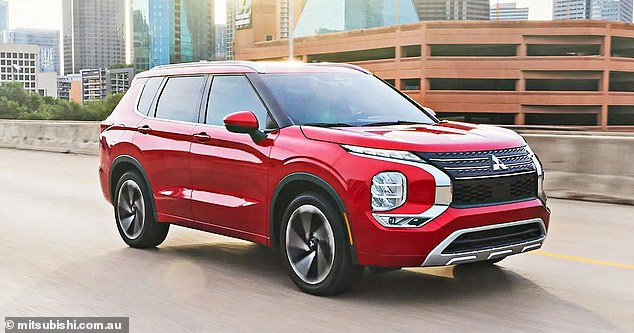The removal of a major tax break could change the face of Australia’s EV industry forever and cost EV drivers thousands of extra dollars.
From 1 April 2025, the Fringe Benefits Tax (FBT) exemption for plug-in hybrid vehicles (PHEV) will be removed.
Under the FBT law, PHEVs will no longer be considered low-emission or zero-emission vehicles and only fully electric vehicles will be eligible for the exemption.
PHEVs have a combustion engine and a battery and an electric motor, but they have a much larger battery unlike normal hybrids.
The FBT exemption previously applied to personal use of electric vehicles financed through a novated lease or operated by a company.
This imminent change comes at a crucial time for the electric vehicle industry, said CarExpert.com.au founder Paul Maric. Yahoo Finance.
“Although people are switching from electric vehicles to plug-in hybrids, it is the worst possible time for this kind of thing, because people simply do not want to buy electric vehicles and they are going to remove the only real subsidy that is currently gaining ground,” stated Mr. Maric.
The impending FBT switch could also see the second-hand market flooded with PHEVs as owners look to offload their vehicles.
From 1 April 2025, the Fringe Benefits Tax (FBT) exemption for plug-in hybrid vehicles (PHEV) will be removed. Pictured is a Mitsubishi Outlander PHEV

Fewer than 3,000 electric vehicles were sold in Australia in the second quarter of 2022, according to the Australian Automobile Association (pictured, an electric vehicle on the Gold Coast)
Compared to other types of motors, fully battery-powered electric vehicles (EVs) have been extremely popular in Australia in recent years.
According to the Australian Automobile Association (AAA), fewer than 3,000 electric vehicles were sold in Australia in the second quarter of 2022.
The FBT exemption for electric cars came into effect on July 1, 2022, and sales of electric vehicles rose to more than 25,700 in the second quarter of 2023, Yahoo reports.
Sales have stagnated since then, with only 25,353 electric vehicles sold in the second quarter of this year.
Meanwhile, sales of plug-in hybrid vehicles have been gaining momentum, with 1,894 sold in the second quarter of 2022 and 4,675 sold in the second quarter of 2024.
From the beginning of January to the end of September 2024, PHEV sales have soared by 120.5 percent compared to the same period last year.
This compares with hybrids (up 87 percent) and electric vehicles (up 6.6 percent).

The impending FBT switch could flood the second-hand market as PHEV owners part with their cars. Pictured is a BYD Sealion 6 PHEV
The motor industry is pushing for the FBT exemption for PHEVs to be extended.
Rohan Martin, chief executive of the National Automotive Leasing and Packaging Association, believes PHEV sales will plummet as a result.
“Without that incentive, we think there will be a significant drop in sales, plus for those who have been considering switching to some electrified vehicle, we think it’s likely to disincentivize them, especially if they want a larger type of vehicle.” ‘ said Mr Martin to the alphabet.
Motor Trades Association chief executive Matt Hobbs said the government should reconsider its decision to remove tax benefits for plug-in hybrids.
“The government has challenged the industry to decarbonize… Now that they have it, we need to give the industry the tools and consumers to feel incentivized.”


